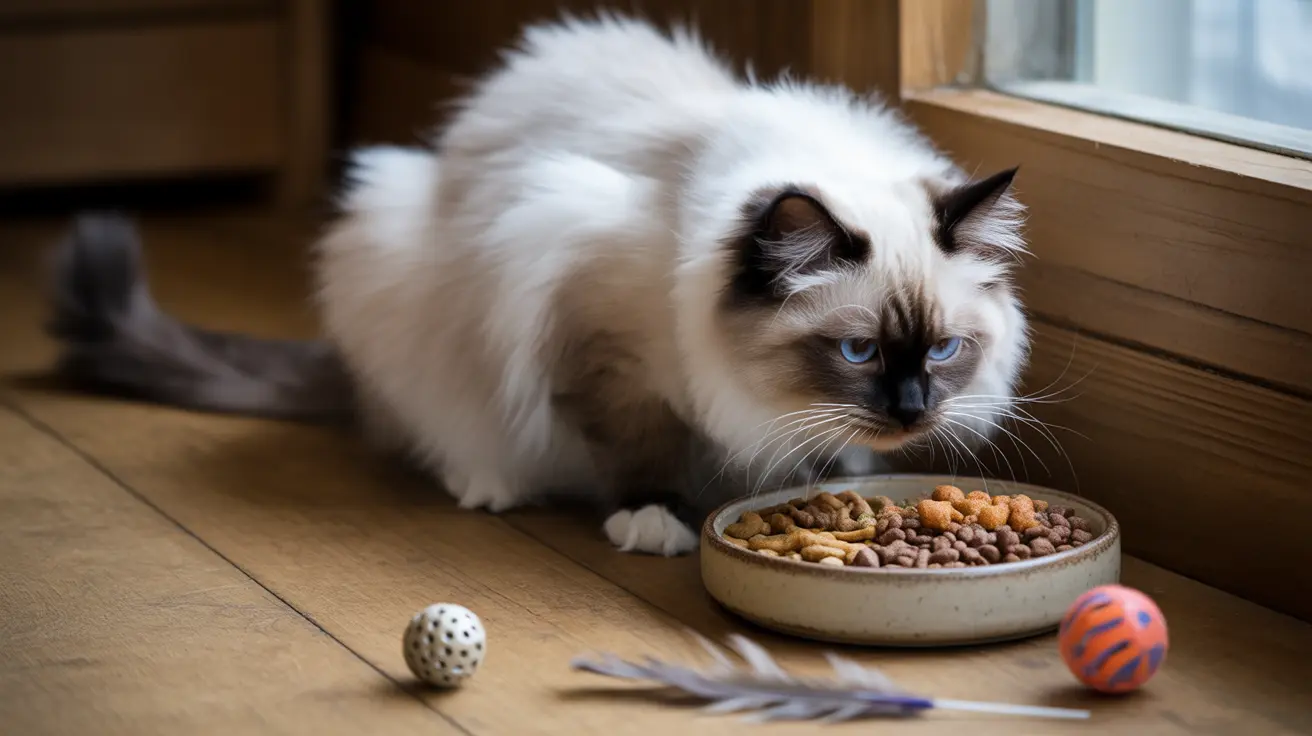When it comes to nourishing our feline friends, understanding the different types of cat food available is crucial for making informed decisions about their nutrition. From traditional kibble to premium raw diets, each type of cat food offers unique benefits and considerations that can impact your cat's health and well-being.
In this comprehensive guide, we'll explore the various cat food options available, helping you understand their nutritional value, benefits, and potential drawbacks. Whether you're a new cat parent or looking to optimize your pet's diet, this information will help you make the best choice for your furry companion.
Understanding Different Cat Food Categories
Dry Cat Food (Kibble)
Dry cat food remains the most popular choice among cat owners, primarily due to its convenience and cost-effectiveness. High-quality kibble contains a balanced mix of proteins, fats, and essential nutrients, though it typically has lower moisture content than other options.
Benefits of dry cat food include:
- Long shelf life
- Cost-effective
- Convenient for free-feeding
- Helps maintain dental health
- Easy to store and measure
Wet Cat Food
Wet cat food provides excellent hydration and is often more palatable for picky eaters. With moisture content typically above 75%, it helps ensure your cat gets adequate water intake, which is crucial for urinary health.
Key advantages of wet food include:
- High moisture content
- Usually more protein-rich
- Better palatability
- Easier to digest
- Variety of textures and flavors
Premium and Specialty Options
Fresh and Raw Cat Food
Fresh and raw diets have gained popularity among cat owners seeking more natural nutrition options. These diets closely mirror what cats would eat in the wild, typically containing high-quality protein sources and minimal processing.
Freeze-Dried and Dehydrated Options
These alternatives offer the benefits of raw food with added convenience and longer shelf life. They can be rehydrated before serving and often retain more nutrients than heavily processed options.
Choosing the Right Food for Your Cat
Age-Specific Nutrition
Cats have different nutritional needs at various life stages. Kittens require more protein and calories for growth, while senior cats may need specialized formulas to support joint health and maintain healthy weight.
Health Considerations
Some cats require special diets due to health conditions such as:
- Kidney disease
- Diabetes
- Food allergies
- Weight management needs
- Urinary tract issues
Frequently Asked Questions
What are the different types of cat food available, and how do they compare in nutrition and convenience?
Cat food comes in several forms: dry kibble, wet food, fresh/raw, freeze-dried, and semi-moist options. Dry food offers convenience and cost-effectiveness, while wet food provides better hydration. Fresh and raw diets offer high nutritional value but require more preparation and storage consideration.
Is wet cat food better than dry cat food (kibble) for my cat's health and hydration?
Wet cat food generally provides better hydration and often contains more protein than dry food. However, both can be nutritionally complete. Many veterinarians recommend a combination of both to balance convenience with optimal nutrition and hydration.
How can I tell if a cat food brand uses high-quality protein and meets my cat's nutritional needs?
Look for foods with named meat sources as the first ingredients (e.g., "chicken" rather than "meat by-products"). Check for AAFCO certification and evaluate the guaranteed analysis. Quality brands will clearly list their protein sources and nutritional content.
What should I consider when choosing between raw, fresh, freeze-dried, or semi-moist cat food for my pet?
Consider your budget, storage capabilities, time for preparation, and your cat's preferences. Raw and fresh foods require refrigeration and careful handling, while freeze-dried options offer similar benefits with easier storage. Semi-moist foods balance convenience with palatability.
Are there special types of cat food recommended for kittens, senior cats, or cats with health issues?
Yes, age-specific and condition-specific formulas are available. Kittens need more protein and calories, senior cats often benefit from joint-supporting ingredients, and cats with health issues may require veterinary-prescribed diets tailored to their specific conditions.
Making the Final Decision
The best cat food choice depends on various factors, including your cat's age, health status, preferences, and your lifestyle and budget. Consider consulting with your veterinarian to create an optimal feeding plan that ensures your cat receives complete and balanced nutrition.






